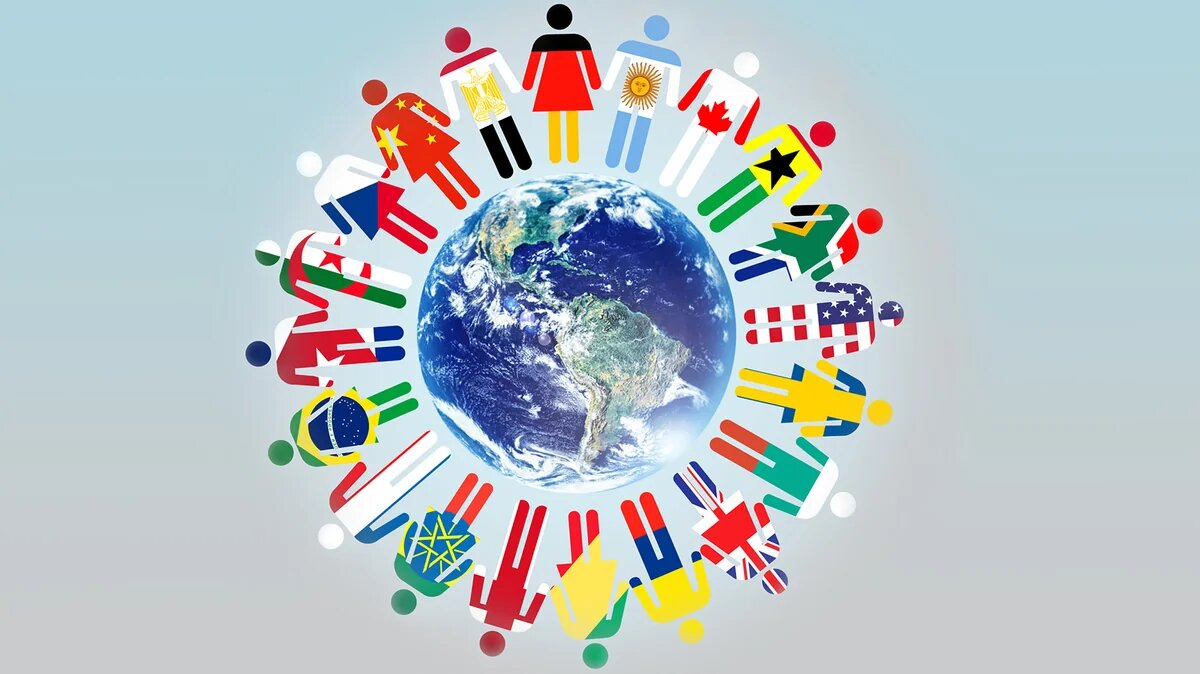Welcome, curious minds and cultural enthusiasts, to a captivating exploration that will unveil the immense power of media in shaping global culture. Picture this: from Hollywood blockbusters to viral TikTok trends, every tweet shared and every news headline breaking on our screens – they all play a crucial role in defining what we consider fashionable, desirable, or even acceptable worldwide. Join us as we embark on an eye-opening journey to unravel how media has become the invisible hand molding our collective consciousness. Brace yourselves for revelations that may challenge your perceptions and leave you yearning for deeper insights into this ever-evolving landscape of influence. Are you ready? Let’s dive into the fascinating realm where media meets global culture!
Introduction
Media is a tool that can be used to shape and change global culture. It can be used to raise awareness about important issues, start conversations and create change. It can also be used to spread messages of hate and intolerance. Media has the power to connect people from all over the world and give them a voice. It can also be used to divide people and create conflict. The role of media in shaping global culture is complex and ever-changing.
What Does Globalization Mean?
Undoubtedly, the globalization of media has had a profound impact on shaping global culture. The spread of media technologies has broken down communication barriers and facilitated the free flow of information and ideas across borders. In doing so, it has helped to create a more interconnected and interdependent world.
However, globalization is not just about the flow of information and ideas. It is also about the economic, political, social, and cultural forces that are driving this process. Media companies are playing an increasingly important role in powering this globalization engine. Through their global reach and influence, they are helping to shape the contours of our shared culture.
So what does globalization mean for our culture? It means that we are becoming more alike. As we are exposed to the same media content – be it news, entertainment, or advertising – we are slowly but surely assimilating into a single global culture. This process is often referred to as “homogenization.”
Some worry that homogenization will lead to a loss of cultural diversity and individuality. Others embrace it as a positive force that is bring people together and making the world a more peaceful and understanding place. Regardless of where you stand on this issue, there is no denying that globalization is having a profound impact on our cultures – and will continue to do so for years to come.
How Has Technology Transformed Media’s Role in Global Culture?
The internet has had a profound effect on the way media is consumed around the globe. No longer are people limited to consuming media from their local region or country – they can now access media from anywhere in the world with an internet connection.
This has led to a more globalized culture, where people from all corners of the world can come together and share their common interests and experiences. Media plays a big role in this, as it is often the conduit through which we discover new cultures and learn about different points of view.
Technology has also transformed the way media is created and distributed. With the advent of social media, anyone can now be a content creator and share their voice with the world. This has led to a more democratized media landscape, where independent voices can compete with traditional news outlets for attention.
Technology has had a massive impact on media and its role in global culture. It has made information more accessible than ever before and empowered individuals to share their perspectives with the world. In doing so, it has helped to break down barriers between cultures and promote understanding and collaboration on a global scale.
Different Types of Global Media and Their Effects on Various Cultural Groups
Different types of global media have different effects on various cultural groups. News media, for example, is often criticized for its negative and distorted portrayals of other cultures. This can lead to misunderstandings and mistrust between people of different cultures.
Entertainment media, on the other hand, often portrays other cultures in a more positive light. This can help to build understanding and appreciation for other cultures. However, it is important to remember that entertainment media is often created with profit in mind, rather than accuracy or cultural sensitivity.
Social media platforms like Facebook and Twitter are another way that people from different cultures can connect with each other. These platforms can be used to share information and experiences, as well as to connect with people who have similar interests. However, social media can also be a source of misinformation and misunderstanding, so it is important to use them responsibly.
The Negative Impact of Media on Culture
In recent years, the media has been blamed for a number of negative impacts on culture. One of the most commonly cited examples is the way that the media can negatively impact body image. Studies have shown that exposure to images of thin, beautiful celebrities and models can lead to feelings of inadequacy and low self-esteem, especially in young girls and women.
The media has also been accused of promoting unhealthy beauty standards by airbrushing or photoshopping images of people, which gives an unrealistic impression of what real people look like. This can again lead to feelings of inadequacy and low self-esteem.
The media has also been blamed for contributing to the sexualization of young girls and women. There is increasing evidence that young girls are being pressured to dress and behave in a sexualized way at younger and younger ages. This can have harmful effects on their development and sense of self-worth. It can also lead to early sexual activity and risky behaviours, as well as increase the likelihood of them being victims of sexual violence.
All of these negative impacts of the media on culture can have serious consequences for individuals and society as a whole. It is therefore important that we are aware of them and take steps to protect ourselves from them.
What Changes Can We Make to Avoid Such Negative Impact?
The increasingly globalized world has led to a trend of Americanization, where Western media and culture dominate the market. This has had a negative impact on native cultures and traditions around the world. In order to avoid such negative impact, we need to change the way we consume and produce media.
We can start by diversifying our media diet. Instead of only consuming Western media, seek out content from other cultures. This will help us better understand and appreciate the richness of the world’s cultures. We can also support media that promotes cultural diversity.
In terms of production, we need to be more mindful about how our content might be received by people of different cultures. We should avoid perpetuating stereotypes and instead strive to create accurate and respectful representations of all cultures. When we make an effort to be inclusive, we can help create a more positive image of global culture.
Conclusion
In conclusion, it is clear that media plays a crucial role in shaping global culture. It has provided us with a new perspective on the world and hastened globalization by connecting people across countries. At the same time, we must be aware of its potential to become an instrument for segregation and exclusion. We must strive to use media responsibly to promote cultural exchange and understanding between different countries while preserving our individual cultures’ unique identity.





